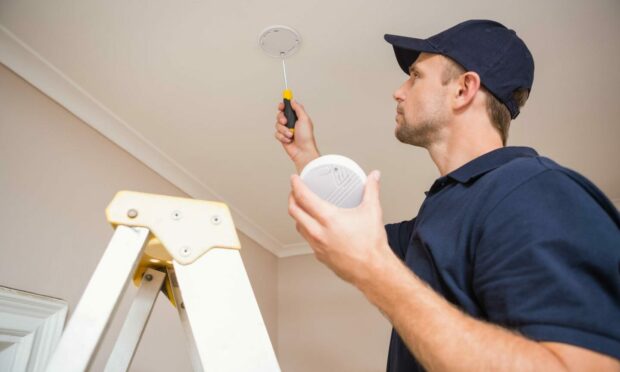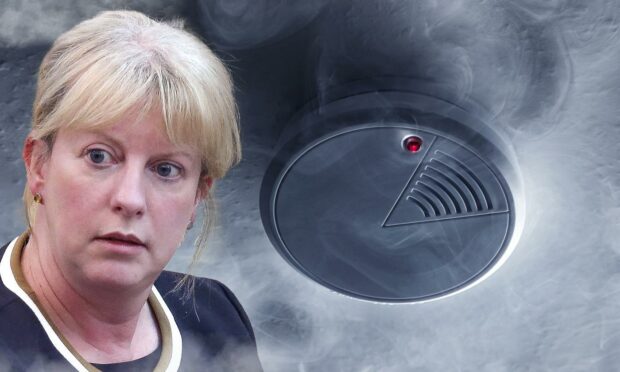A public campaign to reverse the requirement for homeowners to install interlinked smoke alarms has been thrown out by MSPs.
Since February 1, every home needs to have one smoke alarm in the room people spend the most time in, and one in every hallway on each storey, as well as a heat alarm in the kitchen.
All of these alarms must be mounted onto the ceiling and interlinked so if one goes off, they all go off.
The Scottish Government had faced repeated calls to postpone the plans due to a lack of public awareness, affordability and even a shortage of alarms.
A public petition, led by Ian Nicol, aimed to change the rules so they do not apply to smaller properties.
But MSPs decided on Wednesday to block the petition at Holyrood.
Legislation is ‘unnecessary and onerous’
In his petition, Mr Nicol argued the need for multiple linked alarms in every home is “unnecessary and onerous”, adding the cost of installing these new alarms is “substantial”.
Housing Secretary Shona Robison previously stated the average cost would be around £220.
Mr Nicol claimed: “An exemption for small houses is required.
“The sound of multiple alarms sounding at once in small houses, even during a test, or for a minor alarm defect, would create annoyance to older residents and unaffected neighbours.
“Alarms often go off for minor reasons such as burnt toast and there is no need for multiple alarms to go off all over the property.
“Strategically arranged alarms in circulation areas outside living and sleeping accommodation would surely suffice.”
Nothing else can be achieved, says MSP
However Holyrood’s public petitions and citizen participation committee threw out his calls.
It comes after the Scottish Government provided £2 million of funding to Care and Repair Scotland and the Scottish Fire and Rescue Service to support those at high risk of fire, the elderly and those who are disabled to get these new alarms installed.
Conservative MSP Alexander Stewart said: “This has been controversial and there has been a lot of anxiety and delay.
“But a fund has been set up and communication has improved.
“The petition itself indicates there should be an exclusion for small houses – that will not happen.
“I think because of that, what has taken place, and the timescale, I am not clear if we can take this any further.
“I don’t feel anything else can be achieved.”
His fellow MSPs sitting on the committee agreed and the petition was officially closed.


